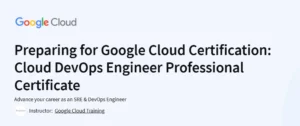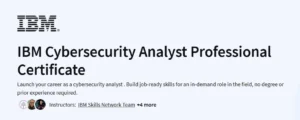The Handbook for Ruby Developers Course
A hands-on and well-structured guide to mastering Ruby, ideal for building robust and elegant applications.
What will you learn in The Handbook for Ruby Developers Course
Understand Ruby syntax, data structures, and control flow
Build real-world applications using object-oriented Ruby principles
Work with common Ruby gems, libraries, and development tools
Practice metaprogramming and functional programming in Ruby
Learn testing, debugging, and performance optimization techniques
Strengthen Ruby fluency for software development and interviews
Program Overview
Module 1: Ruby Fundamentals
⏳ 0.5 week
Topics: Variables, strings, arrays, hashes, conditionals
Hands-on: Write basic scripts and manipulate data structures
Module 2: Methods, Blocks & Iterators
⏳ 0.5 week
Topics: Defining methods, yield,
each,map,selectHands-on: Create utilities using block-based iteration
Module 3: Object-Oriented Ruby
⏳ 1 week
Topics: Classes, inheritance, modules, encapsulation
Hands-on: Build a mini project like a user management system
Module 4: Advanced Ruby Concepts
⏳ 1 week
Topics: Metaprogramming, mixins, duck typing, monkey patching
Hands-on: Extend native classes and write dynamic method definitions
Module 5: Functional Programming & Error Handling
⏳ 0.5 week
Topics: Lambdas, procs, exceptions, rescue/ensure
Hands-on: Build reusable functions and error-resilient programs
Module 6: Testing, Debugging & Performance
⏳ 0.5 week
Topics: Unit testing with RSpec, profiling, debugging tools
Hands-on: Write tests and debug an existing Ruby app
Get certificate
Job Outlook
Ruby remains popular in web development, especially with Rails
High demand for Ruby developers in startups, fintech, and SaaS
Roles include Ruby Developer, Backend Engineer, and Full Stack Developer
Average salaries range from $90,000–$130,000 depending on region and experience
- Covers both beginner and advanced Ruby programming techniques
- Offers practical examples, exercises, and hands-on projects
- Strong emphasis on writing clean, maintainable Ruby code
- Doesn’t cover Ruby on Rails in detail
- Assumes some prior programming knowledge
Specification: The Handbook for Ruby Developers Course
|
FAQs
- Teaches core Ruby concepts and syntax used in interviews.
- Covers object-oriented principles, metaprogramming, and functional programming.
- Provides hands-on exercises to demonstrate problem-solving skills.
- Includes debugging and testing techniques applicable in real scenarios.
- Strengthens practical knowledge that recruiters often assess.
- Guides learners through building mini-projects like user management systems.
- Teaches object-oriented programming and modular design.
- Introduces Ruby gems and libraries to enhance functionality.
- Offers hands-on exercises for real-world application development.
- Prepares learners to design scalable and maintainable code.
- Designed for learners with some prior programming knowledge.
- Explains Ruby syntax and basic constructs from scratch.
- Breaks down complex topics like metaprogramming into understandable steps.
- Offers plenty of hands-on exercises for practice.
- Helps learners transition smoothly to advanced Ruby concepts.
- Covers unit testing with RSpec.
- Teaches common debugging tools and techniques.
- Provides exercises to identify and fix bugs in Ruby code.
- Introduces performance profiling to optimize applications.
- Encourages best practices for maintaining high-quality code.
- Provides strong Ruby foundations used in backend frameworks like Ruby on Rails.
- Teaches object-oriented design and modular coding, essential for scalable apps.
- Introduces libraries and gems commonly used in full-stack projects.
- Strengthens problem-solving skills and coding fluency for backend tasks.
- Prepares learners for roles like Ruby Developer, Backend Engineer, or Full-Stack Developer.





